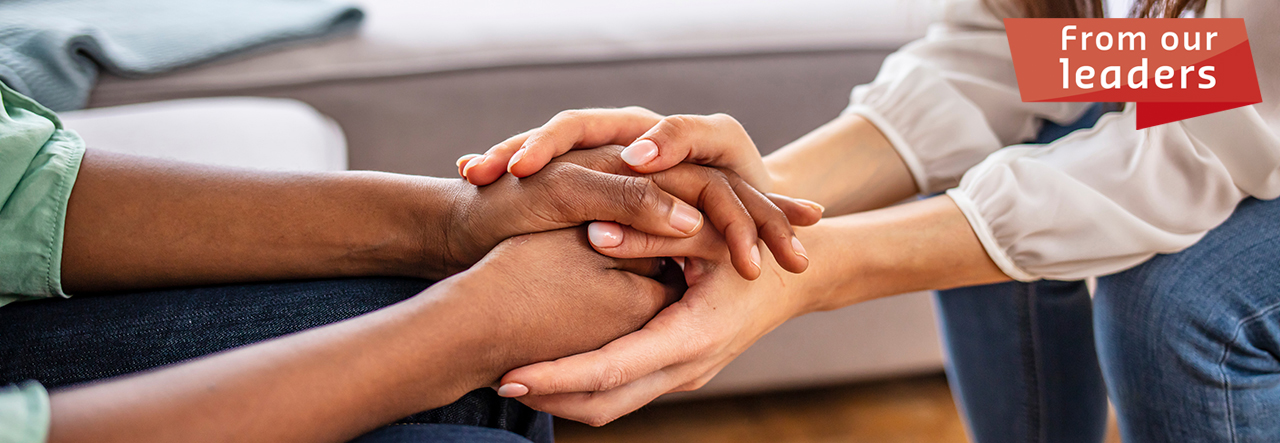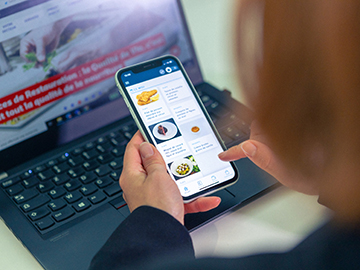If there are any positives to come from what we have endured for the past 18 months, it is the increased focus on mental health.
The pandemic has killed millions of people – friends, relatives, colleagues. It has impacted all of us in one way or another. We have had to change the way we live; the way we work; the way we connect with each other. We have all had to adapt. However, for some it has been easier than it has for others, and that’s because we’re all different.
We have different outlooks on life; different responsibilities; different backgrounds and cultures; different privileges; different lifestyles; different socio-economic situations; different family networks; different access to support; the list goes on. And with these differences comes inequality.
Covid-19 has shone a light on the fact we live in an unequal world. While we’ve all experienced the impact of the pandemic, the scale of that impact has been felt very differently from one person to another.
Many people have had to cope with months of isolation. Others have not seen friends or family. Some have had to balance the challenges of working at home while caring for their family. And others have found themselves trapped in unhealthy relationships. All of these scenarios – and many more – have had a major impact on mental health.
As we mark World Mental Health Day, it’s important to recognize how mental health has become a much more visible issue and, importantly, to understand how we can all help to make it okay to not be okay.
I work for a company that puts improving the quality of life at the heart of its mission. For Sodexo to improve the quality of life for its clients and consumers, it has to first focus on its employees… and having an inclusive, transparent and honest culture in which people can openly talk about how they feel; be confident to discuss any difficulties they may be experiencing; and feel safe in a workplace that recognises everyone has vulnerabilities is a positive step forward.
Investing in supporting mental health at Sodexo
In the past 18 months, I’m proud to say we have invested in supporting the mental health of our employees globally.
For example, we launched mental health awareness training across our business with more than 26,000 managers completing the module so far.
Our Sodexo Supports Me helpline, which provides independent support and guidance to our teams on a whole range of topics, has been extended globally and is providing invaluable advice to our employees; in FY20, 32% of calls received were related to health and lifestyle, stress and mental illness.
In many of our regions, we have had dedicated workshops and webinar sessions focused on raising awareness of mental health issues and helping our managers to feel comfortable talking about mental health with their teams.
In the UK, we established a counselling service dedicated to supporting our employees working in hospitals during the pandemic; in France, we invested in an empathetic leadership program to help our leaders better support their teams emotionally; and in Canada, we launched a campaign focused on removing the stigma associated with mental health problems.
In my own region of Brazil, we actively encourage our leaders to spend time with our site managers; to sit down with a coffee and simply check in with the team to see how they’re doing. For me, this is where we can make a real difference; through effective, empathetic and inclusive leadership, which creates a safe environment for our teams to share their feelings.
Mental illness is a disability
In my role as one of the co-sponsors of our global efforts to drive disability inclusion at Sodexo, this is something I’m personally passionate about. Mental illness is a disability; it can have a long-term effect on the day-to-day activities of those people suffering. We can all play a role in supporting friends, family or colleagues who might be suffering from mental health issues; even if it’s simply taking the time to understand, demonstrating empathy or providing an opportunity to talk.
As the CEO for Sodexo’s Corporate Services business in Brazil, I’m pleased to say that later this month we will be launching a global health and wellbeing pledge. This is a clear commitment from the Corporate Services executive team to ensuring that our teams have the space and the permission to prioritise their own mental health and wellbeing. The pledge includes new ways of working designed to reduce stress and undue pressure on our teams; encourages employees to connect with each other to check in and chat; urges employees to disconnect and strive for a better work-life balance; and ultimately drives towards a more inclusive and empathetic culture.
Improving the quality of life starts with taking a human-centric approach, understanding and respecting people’s differences and making it acceptable for people to simply be themselves. This is something we continue to be focused on at Sodexo. We still have a long way to go, but mental health is increasingly in the spotlight, which in my opinion can only be positive as we build a more inclusive culture.
This article was created by Andréa Krewer, CEO Corporate Services, Sodexo Brazil




